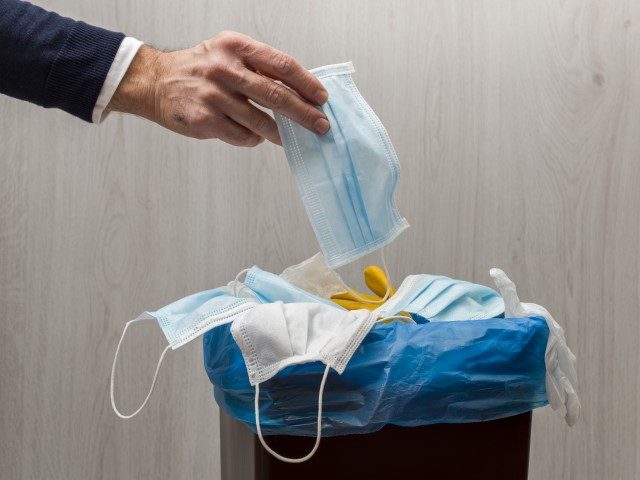A majority of the American public does not support reinstituting masks or social distancing guidelines, two years after the start of the Chinese coronavirus pandemic, a Monmouth University survey released Monday found.
The survey examined sentiments surrounding the pandemic and asked, “Do you support or oppose instituting, or reinstituting, face mask and social distancing guidelines in your state at the current time?”
A majority, 62 percent, oppose reinstituting mask and social distancing guidelines, compared to 34 percent who support bringing them back. This reflects a significant drop over the past two months, as 52 percent supported bringing back restrictions in January.
Additionally, 77 percent said they support the Centers for Disease Control and Prevention (CDC) relaxing recommendations, and another 73 percent agree that it is “time we accept that Covid is here to stay and we just need to get on with our lives.”
The survey also found a drop in the number of people concerned about someone in their family becoming “seriously ill” from the coronavirus. Half now say they are either “not at all concerned” or “not too concerned” — an 11 point rise from the 39 percent who said the same in January.
The survey comes days after Hawaii became the final state to drop its indoor mask requirements. However, Dr. Anthony Fauci is continuing to make rounds, urging Americans to refrain from getting too comfortable.
“I don’t want to use the word ‘lockdown’ as that has a charged element to it, but I believe that we must keep our eye on the pattern of what we’re seeing with infections right now,” Fauci told BBC’s Sunday Morning, adding that “we need to be prepared for the possibility that we would have another variant that would come along and then things change.”
“And if we do get a variance that does give us an uptick in cases and hospitalization, we should be prepared and flexible enough to pivot towards going back – at least temporarily – to a more rigid type of restrictions, such as requiring masks indoors,” he added.

COMMENTS
Please let us know if you're having issues with commenting.